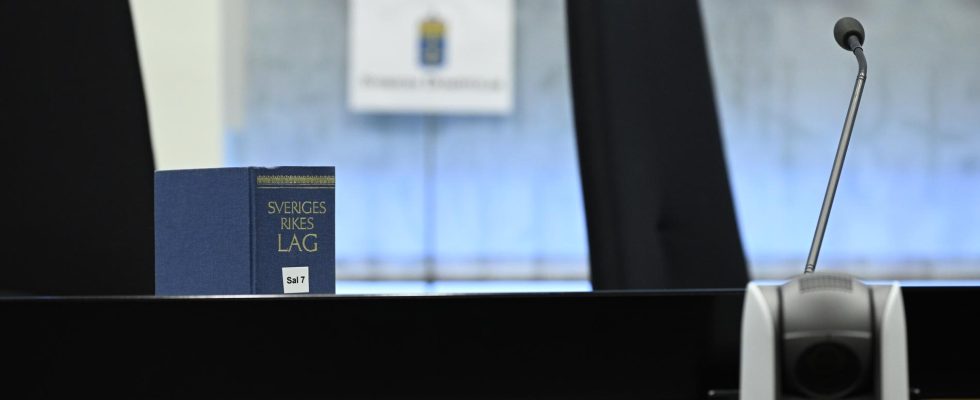unsaveSave
expand-left
full screen Several district courts in the country have difficulty finding judges for vacant positions. Archive image. Photo: Johan Nilsson/TT
Despite the fact that it is a status profession with a high salary, several district courts have great difficulties in finding judges. Twelve employment cases had to be completely written off last year because no one applied for the positions.
– It is not something we can be satisfied with, says the chairman of the judges’ committee, Monica Dahlbom.
The shortage of judges has been a recurring problem, but in 2023 the lowest number of applicants per position was noted since at least 2011. According to the judges’ board, which has the government’s task of proposing who should become judges, one explanation could be that a large number of judges have previously been hired in a short time.
– There is a certain number of people who can apply and when more people are hired, there are fewer left who can apply for new positions, says Monica Dahlbom.
– But the competition for qualified lawyers is also very high.
At the same time that there will be more judges to be able to meet an increased number of cases, large retirements are expected.
More fiscals
The equation can be difficult to add up. But the Courts Agency works actively to bring in more judges, including by increasing fiscal places – the first step in the special training for judges.
They also want to get more people who have not gone through the traditional judicial path to apply, says Director General of the Swedish Courts Administration Thomas Rolén.
– If you are a good lawyer, for example as a lawyer or an academic, you can apply for a position as a judge. There is no formal obstacle.
Then you can apply for a position as adjunct counsel and for a year try working as a judge. These services are also to be expanded.
Another way to get more judges could be to review today’s order where it is made public who has applied, Rolén believes.
– It deters many from applying. If you already have a good job, you may not want to tell them that you are looking for something else. If you also see that someone has applied who has strong credentials, it can also seem discouraging.
Peak
Although the low number of applications is a concern, it does not pose an urgent problem, says Rolén, who emphasizes that the processing times at the courts last year were very good.
Behind the results, however, a very large workload is hidden in several places. Among other things, at Ångermanland’s district court in Härnösand, where there have been difficulties in appointing judges.
– All employees have experienced very high work pressure for a long time, says lawman Magnus Wiklund.
Hard work and help from retired judges means that the operational goals are still reached, according to Wiklund.
– In the long run, we need to hire more employees to be able to meet the target increase, but I am convinced that we will be able to reverse the trend.
FACTS Over 1,200 judges
Sweden’s Courts has over 7,000 employees and consists of 80 independent authorities of various sizes across the country. The courts and tribunals are independent and autonomous and manage and plan their own activities.
Ordinary judges are appointed by the government following a proposal from the Judicial Committee. In 2022, there were 1,259 ordinary judges within Sweden’s Courts. Most ordinary judges work in court.
In order for courts and tribunals to maintain their dimensions, there is a need in the coming years to recruit an average of around 70 regular judges annually.
Source: Norwegian Courts Office
Read more
